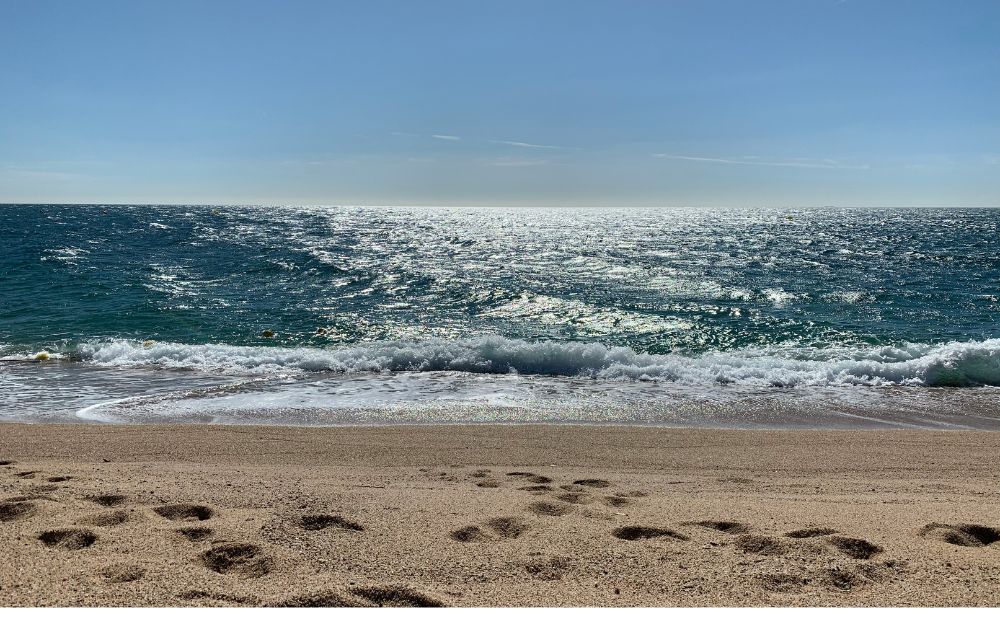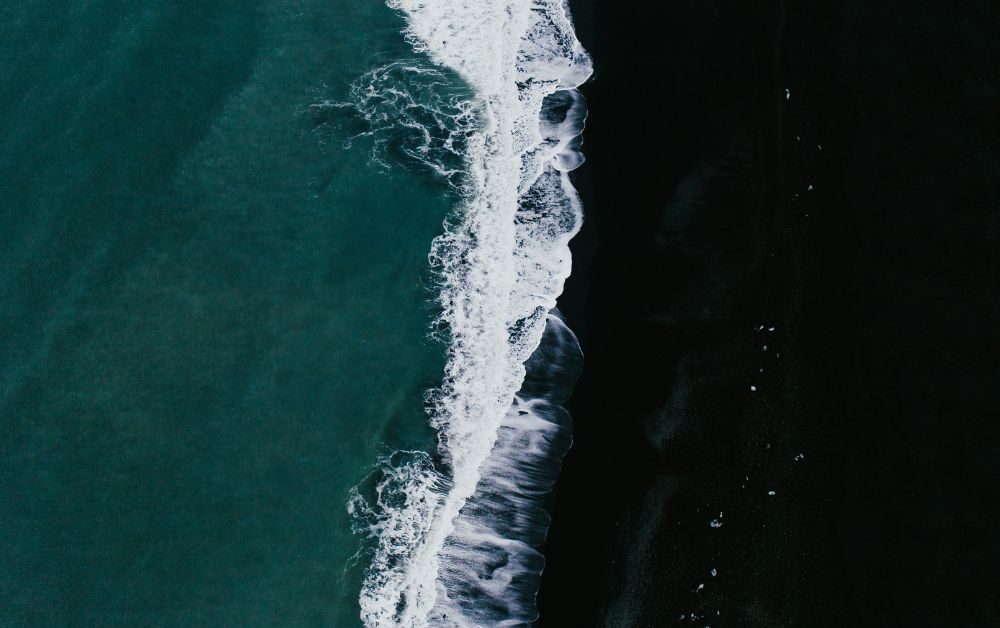Today’s insights are brought to you by my colleague and leadership thinker, Keith Coats.
I love the ocean. Many do. Here is why I have come to love it and why we all need to find ‘our ocean’.
Our lives, for the most part, are consumed by social media and the devices that connect us to ‘the world’. Who hasn’t been just a little shocked when getting feedback from Apple’s screen time option on just how many hours they have spent on their phone? (For the average American, it is three hours and fifteen minutes every day).
I have read that we touch our phones 2,617 times every 24 hours! We become so distracted that we can find ourselves in a place of stunning beauty or historical significance, only to experience it through endless photos and selfies with little or no time to just be present in the moment.
Recently, I was having breakfast in the little town where I live at a restaurant with a panoramic view of the ocean, no matter where you sit. A family of four was at a table near me, and the entire time they were there, they didn’t once look out at the ocean, so captured were they by their phones. They just sat there in total silence, each on their device, the arrival of their breakfast failing to break the spell. It was tragic and was a scene that has stayed with me.
We might well need to redefine the term ‘social’ and what it means to be ‘together.’
When in such places of beauty or significance and looking at them through our phone cameras, we tell ourselves that we are capturing the moment forever; but the truth is, ‘the moment’ we are so determined to capture, ends up lost in the recorded mass of other such ‘moments. It becomes a fleeting, shallow imprint, never having afforded the time to breathe in such a way that potentially changes who we are and how we act.
If we are honest, it is more about telling ‘our world’ of where we are and what we have achieved; a ‘look at me’ and please ‘like’ – in other words, validate me, before you move on to your next distraction.
Day after day, layer upon layer, this distracted focus serves only to diminish what it truly means to be alive. It induces a reality-numbing dullness that, at worst, threatens the very essence of meaningful existence, and at best, distorts it into unrecognisable forms. It constricts our ability to focus and be present. It erodes life and joy in subtle, unnoticed ways that eventually entrap us without us even knowing it. It is a slow death whilst convincing us that we are fully alive. It is living in Plato’s cave: captivated by the shadows on the wall, while reality is to be found only by escaping the cave.
Our social media feeds make us feel that the entire world is obsessed with what we think and do, and our little ego, uncaged, becomes a beast. It is soon all about me and my place in the echo-chambers of my own creation. We become obsessed with likes, reposts, and followers, oblivious to the addictive creep over time of being shaped by the technologies we use.

The ocean, against the shrill of all this, is my remedy. It is my exit to the (Plato’s) cave.
The ocean, as I sit daily and spend time with it, offers something entirely different. It was there long before me and will be there long after I am forgotten. Its eternal nature reminds me of my fleeting presence and, in doing so, offers a perspective perhaps only matched by gazing at the stars. It is incomprehensibly vast, entirely uncontrollable, and unfathomably mysterious.
Every day, it greets me with welcoming indifference to who I am and why I am there. It is never going to affirm or argue with me, no matter how loud I howl into the wind or how influential my reputation. It invites a stillness and offers to envelop me in something far greater and bigger than myself. Whereas social media enlarges and puffs-up (when it comes to the ‘me’), the ocean, like a wholesome antidote, reduces and reminds me of my place in things.
Mark Twain wrote that the ocean asks nothing from us other than that those who stand on her shores gradually attune themselves to her rhythm. To then engage with that rhythm, whatever it is on any given day, is to become alive and in touch with what I suspect is meant to be.
It is to deliberately tune oneself to something bigger than oneself and briefly inhabit the place that opens. In doing so, I suspect that I will somehow become a better person within and without. I know that I like myself less when engaging with social media and more when embracing the ocean. But of course, for confirmation of that, you’ll have to ask those who live with me!

The English poet A.E. Houseman (1859-19360 wrote:
Here on the even sand,
Between the sea and land,
What shall I build or write
Against the fall of night?
Shall it be Troy or Rome
I fence against the foam,
Or my own name to stay
When I depart for aye?
On my daily sojourn to the ocean, those words help orientate me to the ‘gradual attuning’ that I attempt. They provide a focus and intentionality to the swim that follows in water where the temperature is usually below 15 degrees Celsius (59°F). And, if my mind isn’t focused before entering the water, it certainly is ‘attuned’ quickly enough once in that degree of chill!
The ocean, for me, invites perspective. As the never-ending news streams that interrupt us often induce unwitting panic and anxiety, I suspect that we are all in desperate need of finding a means whereby we can get perspective.
Perspective: on life and our place and responsibility in it; on how we choose to connect and relate to others; on how we can build empathy and ensure we leave the place better for our presence. Astronauts call it the ‘overview effect’ – when they gain a new perspective from having seen Earth from space. I sadly cannot get to experience space, but the ocean provides my ‘overview effect’.
Find your ocean.
P.S. And yes, the irony is not lost on me that this plea to put down your devices and ‘find your ocean’ is being posted on a social media platform! Let me also add that some of these thoughts were inspired by Johann Hari’s excellent book, Stolen Focus: Why You Can’t Pay Attention – and How to Think Deeply Again (2022). Hari’s work has a stellar cast of admirers, including Adam Grant, Susan Cain, Naomi Klein, Stephen Fry, and Emma Thompson. It falls resoundingly into my ‘must-read’ category.
Recently Keith’s travel has included working throughout the UK, the USA, Saudi Arabia, Dubai, Abu Dhabi, Germany, Switzerland, Singapore, and of course, South Africa.


